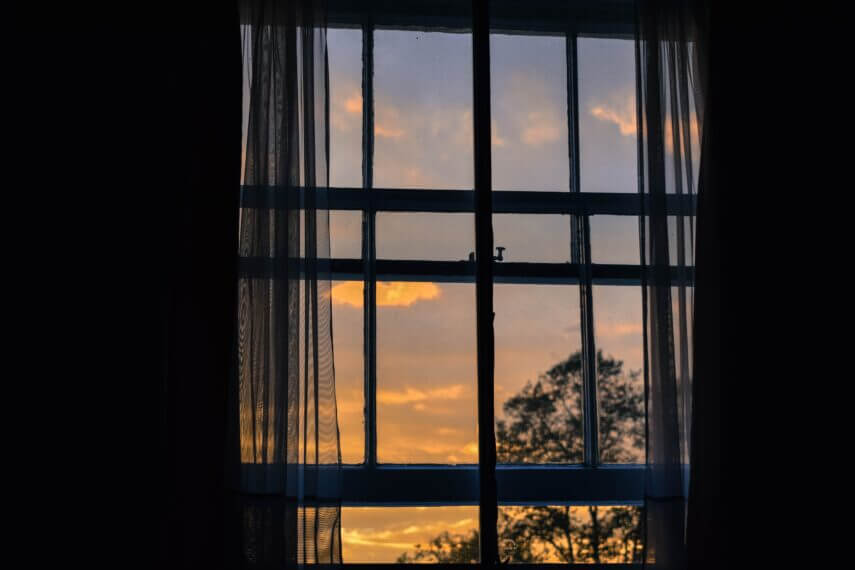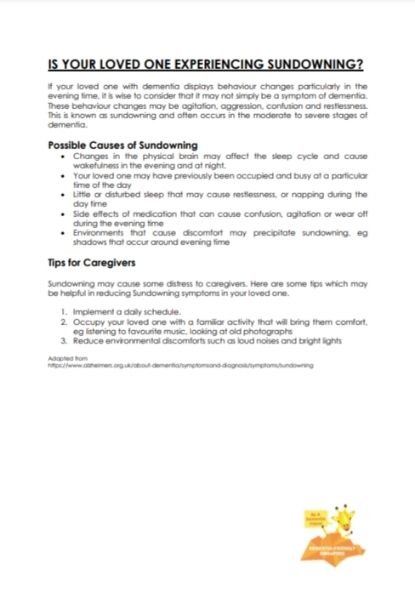Playback speed:
What Is Sundowning?
Your loved one living with dementia may display behaviour changes particularly in the evening which include agitation, aggression, confusion and restlessness. This is known as sundowning and often occurs in the moderate to severe stages of dementia.
Possible Causes of Sundowning
- Changes in the physical brain may affect the sleep cycle and cause wakefulness in the evening and at night.
- Your loved one may have previously been occupied and busy at a particular time of the day.
- Little or disturbed sleep that may cause restlessness or napping during the day time.
- Side effects of medication that can cause confusion, agitation or wear off during the evening time.
- Environments that cause discomfort may precipitate sundowning, for e.g., shadows that occur around evening time.
Some Ways to Manage Sundowning
Sundowning may cause some distress to caregivers. Here are some tips which may be helpful in reducing sundowning symptoms in your loved one.
- Implement a daily schedule.
- Occupy your loved one with a familiar activity that will bring them comfort, such as listening to their favourite music and looking at old photographs.
- Reduce sources of discomfort from the environment such as loud noises and bright lights.
Content adapted from Alzheimer’s Society.
How Exercise Helped My Wife with Sleep
John Chin explains to us how evening walks have helped to prevent sundowning in his wife by keeping her engaged.
John Chin used to live in Miami with his wife Kwan. With the help of Kwan’s family, he now shuttles between the US and Singapore to take care of his wife who now lives here.
Source: ForgetUsNot Initiative by LIEN Foundation, Khoo Teck Puat Hospital, & Dementia Singapore





